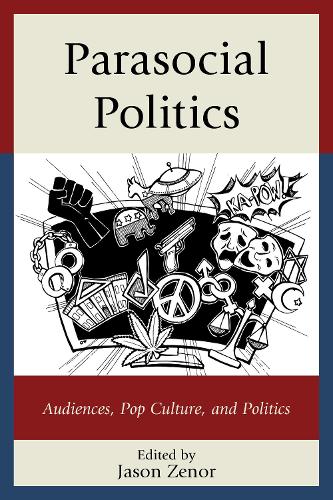
Parasocial Politics: Audiences, Pop Culture, and Politics
(Hardback)
Publishing Details
Parasocial Politics: Audiences, Pop Culture, and Politics
By (Author) Jason Zenor
Contributions by Gregory Adamo
Contributions by William Ashton
Contributions by Carole V. Bell
Contributions by Bryan J. Carr
Contributions by Carly T. McKenzie
Contributions by David Edmund Moody
Contributions by Cynthia Nichols
Contributions by Alison N. Novak
Contributions by Laura Osur
Bloomsbury Publishing PLC
Lexington Books
21st October 2014
United States
Classifications
Professional and Scholarly
Non Fiction
Politics and government
Media studies
Popular culture
302.23
Physical Properties
Hardback
200
Width 161mm, Height 238mm, Spine 20mm
440g
Description
The popularity of cable news, satire, documentaries, and political blogs suggest that people are often absorbing and dissecting direct political messages from informational media. But entertainment media also discusses the important political issues of our time, though not as overtly. Nonetheless, consumers still learn, debate, and form opinions on important political issues through their relationship with entertainment media. While many scholarly books examine these political messages found in popular culture, very few examine how actual audiences read these messages. Parasocial Politics explores how consumers form complex relationships with media texts and characters, and how these readings exist in the nexus between real and fictional worlds. This collection of empirical studies uses various methodologies, including surveys, experiments, focus groups, and mixed methods, to analyze how actual consumers interpret the texts and the overt and covert political messages encoded in popular culture.
Reviews
Parasocial Politics offers scholars and students of media audiences a well-rounded collection of original research studies from a variety of different methodological perspectives. It avoids the stale debates about audience autonomy by focusing on the phenomenology of audience activitythe ways in which audiences leverage their media experiences to help navigate their social and political world. This collection makes a valuable contribution to the field of audience studies and popular culture by skillfully linking audience interpretations of popular media to forms of political, racial, and religious identity. -- John Sullivan, Muhlenberg College
Jason Zenor has compiled an impressive and very timely collection of studies packed with ideas about the potential for entertainmentand entertainersto influence political opinion. Each chapter offers insight into the ways we understand and communicate political meanings that are embedded in the media products we consume. This book will, I hope, inspire many more research projects on this important topic. -- Patricia Phalen, George Washington University
Author Bio
Jason Zenor is assistant professor of communication studies at State University of New York-Oswego.
